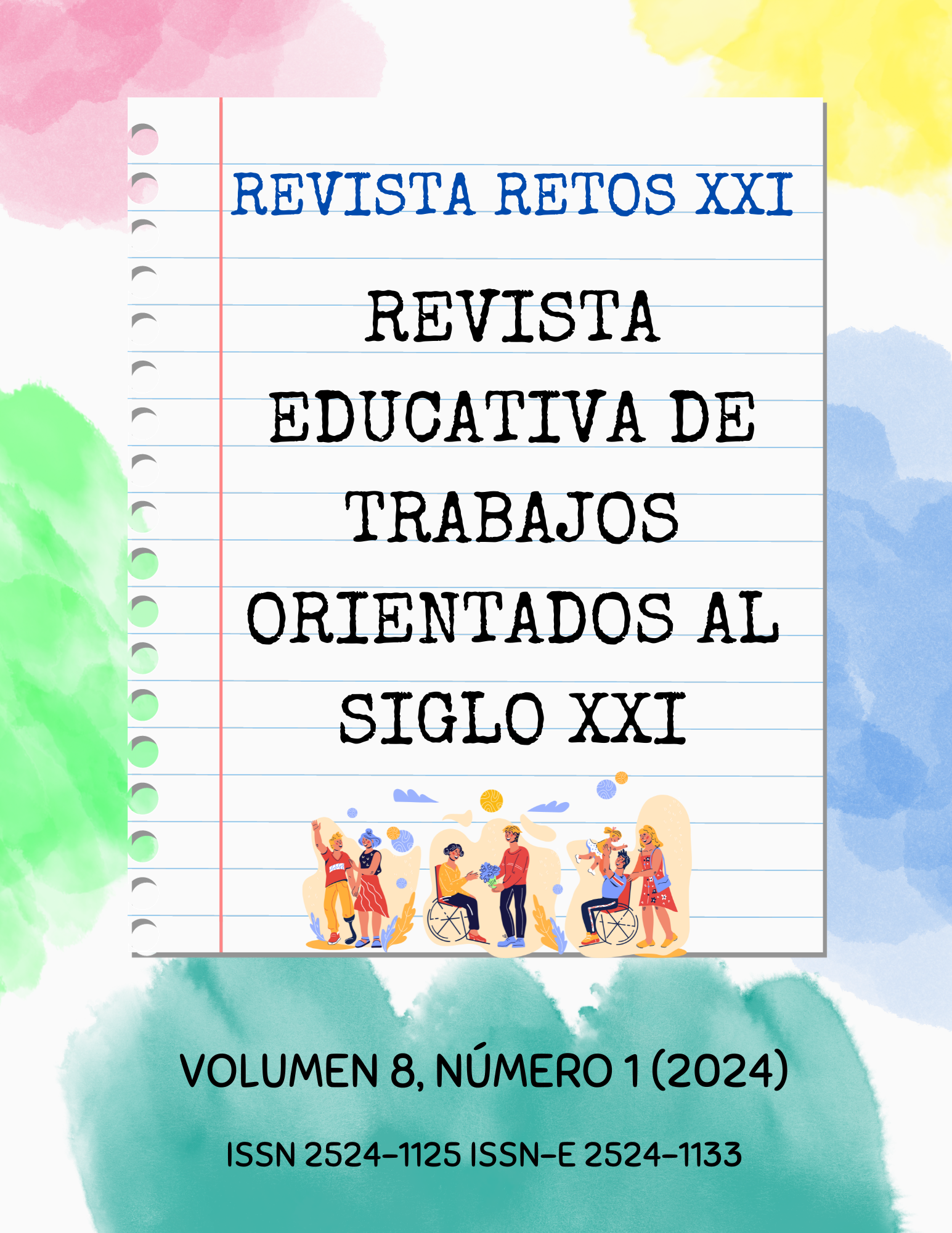Spanish
DOI:
https://doi.org/10.30827/retosxxi.8.2024.29054Keywords:
Educación en línea, Habilidades tecnológicas, Tecnologías de la Información y la Comunicación., Online education, Technological skills, ICTAbstract
The main objective of this research work is to present part of the results of a research project on the Technological Skills for Learning (HTPA) that the students of the Bachelor of English Teaching (LEI) of the Faculty of Languages Campus Tuxtla have. (FLCT), from the Autonomous University of Chiapas (UNACH) whose study was carried out through the implementation of data collection techniques and the comparison of the degree of development of these between two groups of different semesters. The project was carried out in two stages that ran from November 2020 to June 2021 and from August to November 2021, likewise, data collection techniques were designed and applied to know the HTPA of the students. The cut of the study was mixed since it was intended to know the levels of acquisition of the HTPA and present them as data that allow interpretations and the generation of future proposals for the required intervention, in addition to analyzing the change to online education due to Covid-19 and the technological tools and skills developed by the LEI students of the FLCT, UNACH.
Downloads
References
Belachew, T. y Surking, R. (2020). This is the new skills gap for young people in the age of COVID-19. En World Economic Forum 2020. https://www.weforum.org/agenda/2020/10/youth-employment-skills-gap-covid-19/
Betín, A.B., Rodríguez, A., Caurcel, M.J. y Gallardo, C.P. (2022). Statistical validation of the "ECODIES" questionnaire to measure the
digital competence of Colombian high school students in the subject of Mathematics. Mathematics, 11, 33. https://doi.org/10.3390/math11010033
Betín, A. B., Rodríguez, A., Caurcel, M. J., y Gallardo, C. P. (2023). Effectiveness of a digital literacy program in High School Basic education students. Espiral. Cuadernos del Profesorado, 16(34), 12-27. https://doi.org/10.25115/ecp.v16i34.9516
Cárdenas, J. (2018). Investigación cuantitativa. Programa de Posgrado en Desarrollo Sostenible y Desigualdades Sociales en la Región Andina. http://librodigital.sangregorio.edu.ec/librosusgp/B001
Coursera (2020). Global Skills Index. https://pages.coursera-for-business.org/rs/748-MIV-116/images/gsi2020_final.pdf
Conacyt (2020). Agenda de Innovación de Chiapas. Gobierno de la República de México.
Gobierno de Chile (2013). Matriz de Habilidades TIC para el Aprendizaje. Ministerio de Educación de Chile.
Hao, K. (2020). The pandemic is emptying call centers. AI chatbots are swooping in. En News of the MIT Community (2020). MIT Technology review May – Jun 2020.
ONU. (2020). La educación en tiempos de la pandemia de Covit- 19. Informe Covid-19,
CEPAL/UNESCO. https://unesdoc.unesco.org/ark:/48223/pf0000374075/PDF/374075spa.pdf.multi
Reimers, F. (2022). Educación y COVID-19: Recuperarse de la pandemia y reconstruir mejor. IBE-UNESCO. https://www.bing.com/search?q=covit+y+educaci%C3%B3n.+unesco.+pdf&form=ANNTH1&refig=3f95a4b61422405995e39de55a2860cd&ntref=1
UNESCO (2019). Pedagógico. Tic y Educación. UNESCO.
Wenham, C, Smith, J. & Morgan R. (2020) COVID-19: the gendered impacts of the outbreak. Lancet 395(10227), 846-848. https://doi.org/10.1016/S0140-6736(20)30526-2
Published
How to Cite
Issue
Section
License
Copyright (c) 2024 The Educational Journal of Works Aimed at the XXI century (XXI CHALLENGES)

This work is licensed under a Creative Commons Attribution-NonCommercial-ShareAlike 4.0 International License.












